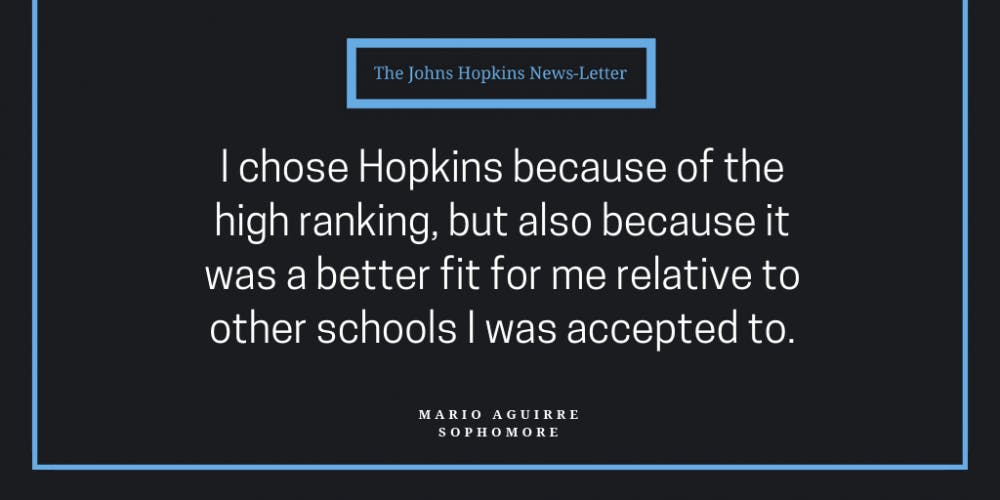Hopkins has once again been ranked 10th in the nation among U.S. News and World Report’s 2020 Best National Universities.
Hopkins is tied with Duke University on the rankings, placing immediately above CalTech and Dartmouth University and is ranked immediately below Northwestern University. Hopkins moved up from its previous ranking as the 11th best national university into the top 10 last year.
A number of other major college ranking systems place Hopkins in the mid-20s, with Niche and Forbes ranking Hopkins 22nd and 27th, respectively. The Wall Street Journal, in partnership with Times Higher Education, recently ranked Hopkins as 12th in the world, after ranking the University as 19th last year.
The general university rankings differ primarily based on which formulas are used to calculate ranking. U.S. News rankings are calculated by comparing universities’ outcomes for students, faculty resources, expert opinion, financial resources, student excellence and alumni giving. Niche, on the other hand, uses student opinions in connection with reported data to calculate its scores.
Hopkins received mixed results with respect to specific U.S. News rankings. It places first in a ranking considering the strength of its Biomedical Engineering major but places 241st in a ranking which compares the ability of schools to drive social mobility. According to the New York Times’ interactive project on economic diversity and student outcomes, 72 percent of Hopkins students come from the 80th percentile income range, but only 65 percent end up in the same range.Hopkins also ranks 64th in the country in First-Year Experience.
U.S. News determines these rankings based on nominations from other college leaders around the country. Hopkins has sought in recent years to reorganize its orientation programs for freshmen, holding small discussion groups and taking students out to dinner at Baltimore-area restaurants.
Current students reflected on how much they prioritized college rankings when they decided what universities to apply to.
Graduate student Yiming Yang told The News-Letter that college rankings mattered quite a lot, primarily because of the weight they carry to employers and to Yang’s family in China.
“Ranking is very important to me,” Yang said. “If compared with Harvard, JHU might be a little weak. However, I still feel satisfied with JHU, and proud of my university.”
On the other hand, sophomore Ryan Ebrahimy told The News-Letter that he had used the rankings to garner a sense of where various colleges stood nationally.
“I looked at U.S. World News rankings,” Ebrahimy said. “It was probably a good starting point, to see where Hopkins stands against the others, and from then on, I could research more about the universities, but that didn’t really influence my ultimate decision to apply.”
Ebrahimy said that while a significant change in the rankings would make him question the reason for that change, he believes prospective students often do not do enough independent research.
“A lot of people just look at it and make their own assumptions about the University,” Ebrahimy said.
Sophomore Brody Silva found the general university rankings less important than the rankings of specific fields of study.
“Overall college rankings didn’t mean much to me while I was applying, my main concern was how schools ranked within the major I was looking for” he said. “Finding a good neuroscience program was more important to me than just being in the top 10 schools.”
Sophomore Mario Aguirre said that while rankings mattered, personal fit also factored into his calculation.
“I chose Hopkins because of the high ranking, but also because it was a better fit for me relative to other schools I was accepted to,” Aguirre said.
Correction: The article originally incorrectly stated that the Wall Street Journal/Times Higher Education ranking placed Hopkins 12th in the country. The correct ranking was 12th in the world.

















